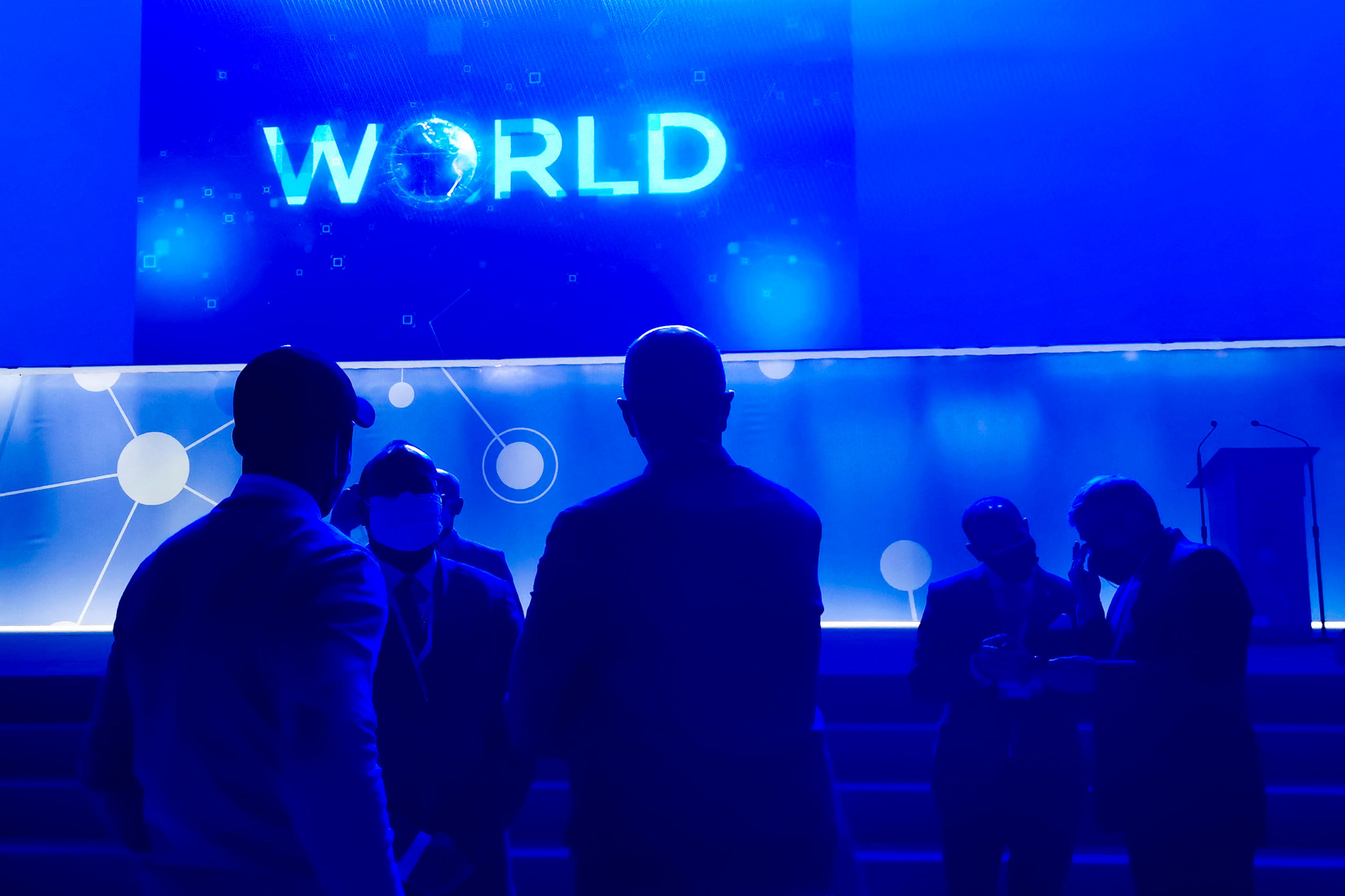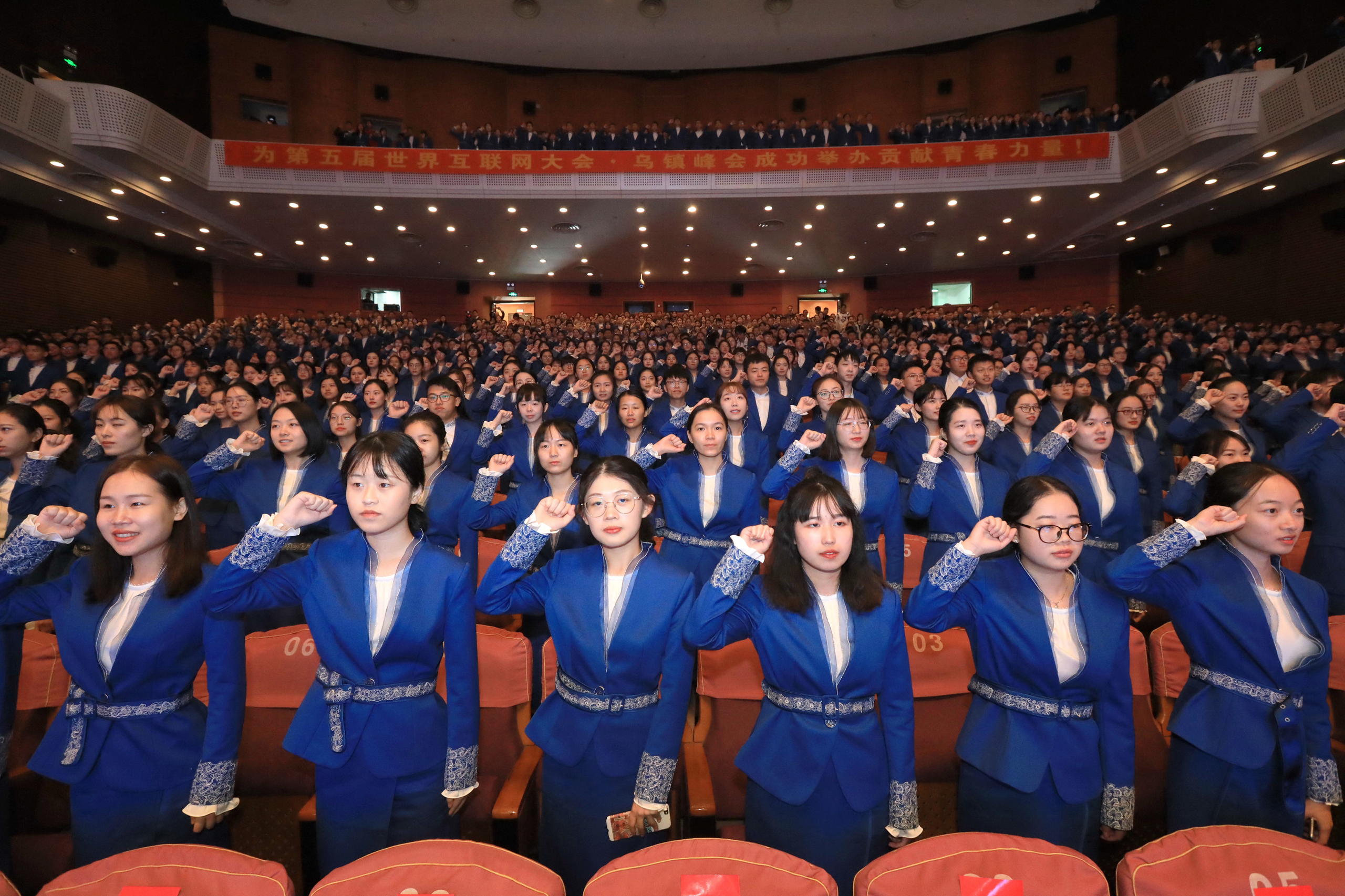
‘One day we may end up with two separate systems’

Is the globalised internet as we know it on the way out? SWI swissinfo.ch spoke to security analyst Kevin Kohler about censorship, sanctions, and digital fragmentation.
SWI swissinfo.ch: Does the internet still have a future?
Kevin Kohler: (laughs) It definitely has – the only question is what sort of a future. The early internet policy of most countries was characterised by laissez-faire and large-scale freedoms. In the meantime, however, many governments have had a rude awakening and become aware that the internet is of strategic importance, so they want to take back control. This tends to work against the idea of a global internet, as we had assumed it was going to be.

Kevin KohlerExternal link is a security analyst at the Center for Security Studies at ETH Zurich, where he works on digital technologies and risk management. He recently wrote about the fragmentation of the internet in this report: One, Two, or Two Hundred Internets? The Politics of Future Internet ArchitecturesExternal link.
SWI: Can you give some examples?
K.K.: Russia and China are two interesting cases, since they’ve wanted to change the governance structure of the internet since the beginning of its globalisation. There has always been a multistakeholder model, in which private interests can exert influence on how the internet is built and how it works. Those two countries want to bring it more under state control. That is a long-standing conflict.
One thing that’s particular to Russia is that the sanctions imposed in 2014 after the occupation of the Crimean peninsula have exposed its dependence. Since that time the Russians have been trying to set up more independent systems, say, with a national payment system – as an alternative to SWIFT, which manages the flow of payments worldwide – or developing a naming system of their own for internet addresses.
In other areas, fragmentation has gone even further. Moscow has expanded its control of content and imposed internet censorship laws with draconian penalties. On the other hand, because of Western sanctions, Russia has lost access to a range of hardware that it can’t manufacture itself: chips, equipment for mobile phones, that kind of thing.
SWI: Isn’t this type of sanctions policy a double-edged sword? On the one hand, Russia is to be punished. On the other hand there is a risk that people there will be left with no alternative to the official propaganda.
K.K.: Yes, it is certainly difficult to strike a balance between economic restrictions on the regime and free access to information for people in Russia.
The propaganda machine on Russian TV has little or no competition. The internet is harder to control, although they are trying. So to cut off the Russian people from the rest of the web in terms of content would not be a very constructive thing to do.
The real point of sanctions is to restrict the technological and economic opportunities for Russia or its current regime. The US sanctions focus mainly on hardware, which is something Russia cannot easily shop around for elsewhere in the world.
SWI: Is a fragmentation of the internet likely, then?
K.K.: That term tends to be used rather vaguely. Often it refers to content, where censorship is controlling which content can appear. At the functional and infrastructure level, it’s not so easy, because most countries just don’t have the technological resources to try to intervene.
One exception is China, which has become more competitive in terms of hardware and infrastructure. At the same time, it is the prime example for separate ecosystems, since the country has been isolated behind the Great Firewall for years now.
If you look at most states, there is a rather diffuse picture. Take India, which has banned many of the Chinese apps – they’ve done this to a great extent for security reasons, but also to encourage the domestic software industry. We see the same thing in Europe: they want to be more competitive against the dominant American tech giants. So it’s a matter of both economics and security.
SWI: Is this an expression of the online “deglobalisation” we have been hearing so much about?
K.K.: We need to be careful here. Fragmentation of content does point in that direction, but at the same time the internet continues to grow. More and more people are going online, more devices are being connected, and more bsuiness deals are being made. Even if states try to get more control in certain areas, that doesn’t necessarily mean automatically there is digital deglobalisation.
In the longer term, though, we certainly need to consider the possibility. A look at history tells us something: information and communication technology often expanded in an organic and unplanned way, and when it turned out to be important, the state moved in to take over – look at radio, telephones, television.
SWI: The internet began its triumphal march as a promise of democratisation and social participation. Now it might turn into the opposite: a closed system that just regurgitates propaganda and is a tool of surveillance. Are such fears groundless?
K.K.: The internet was purposely designed on the principle of “smart remote devices, dumb connections”, which was to minimise state control. Now we see that with technological progress there are more and more opportunities for surveillance and control. But it is my view that the internet still has on balance a positive effect. The internet in countries like Russia provides more room for dissent than, say, television. But the bottom line is: it’s not a given that the internet brings democratisation.
The whole situation is not without irony. Since the 1990s, the West has been transferring a great deal of knowledge and technology to China. The belief then was that the distribution of information and communication technology would automatically lead to political liberalisation. In the end it has turned out to be the opposite – they were giving the Chinese Communist Party the means to build its Great Firewall.
SWI: Speaking of China, are we about to see a digital version of the Iron Curtain? Or is it already there?
K.K.: There are plenty of exceptions, but the trend is going in that direction: maybe one day we will see two completely disconnected systems.
I would like to distinguish between fragmentation and bifurcation. With fragmentation in many national segments of the internet, there is mainly increased state control over content. Bifurcation, on the other hand, would be a radical decoupling into two ecosystems with separate standards and separate hardware.

This second option is down to the strategic rivalry between China and the US, the only two countries that are able to compete on almost all technological building-blocks of the internet. China wants to set up its own ecosystem and export it too. As part of the “Digital Silk Road”, it has made agreements with many countries, under the terms of which China lends money to build digital infrastructure that makes use of Chinese companies and Chinese standards. The US can see this – the Americans are trying to put a brake on key Chinese companies with sanctions. It’s working all right, but it’s only pushing China to find more independent supply chains.
Just like in the Cold War, both sides are trying to build alliances and expand their sphere of influence. In many ways, though, the analogy no longer fits. Back then, the blocs were not as interdependent as they are now. And what’s more, China, when you think of its population and its ability to innovate, is a much tougher opponent for the US than the Soviet Union ever was.
SWI: How does Switzerland fit into all of this? Is neutrality an option on the internet?
K.K.: For some time foreign policy and digitalisation are supposed to be more closely linked. Geneva is a key place here, since it is already a hub of multilateral political activity. The government wants to make Geneva an international capital for digital governance, and is encouraging initiatives in that direction.
This effort is part of its “location policy” and is a key element of Swiss neutrality. It is interesting, however, that China and Russia both want to move the internet to Geneva. They want to put it under the International Telecommunications Union. This is aimed at encouraging a multilateral approach to internet governance and creating a counterweight to the US. Switzerland has to pick its way through something of a minefield here, because it wants to expand International Geneva but at the same time maintain the multistakeholder model.
Translated from German by Terence MacNamee/gw
What role can “Digital Geneva” play in this? Kevin Kohler and Nicolas Zahn give their view:

More
Closing the Digital Geneva Gap

In compliance with the JTI standards
More: SWI swissinfo.ch certified by the Journalism Trust Initiative



























You can find an overview of ongoing debates with our journalists here . Please join us!
If you want to start a conversation about a topic raised in this article or want to report factual errors, email us at english@swissinfo.ch.